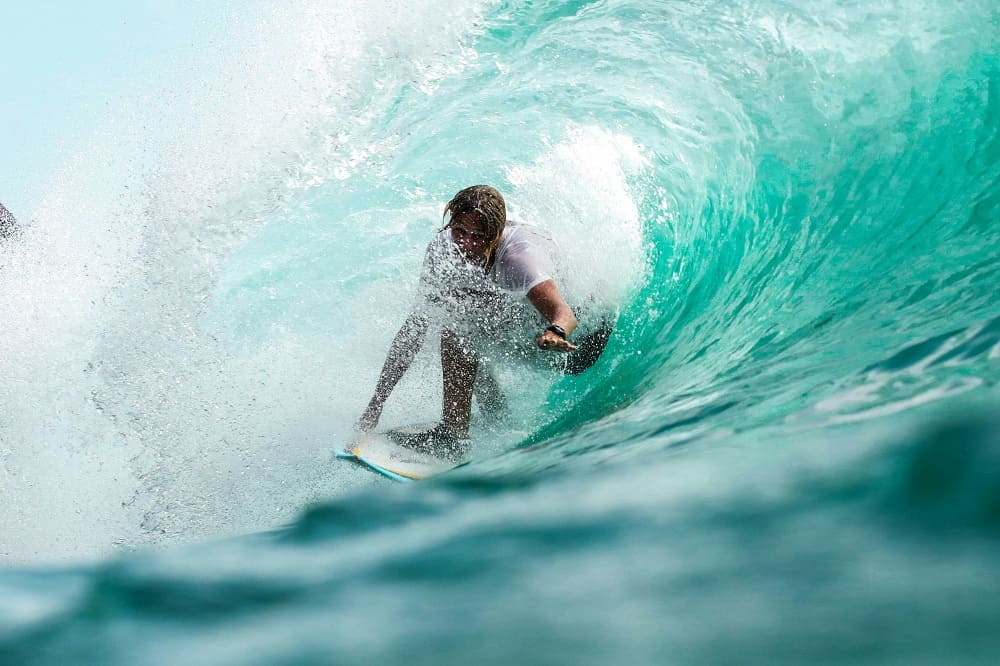Surfing, as a sport and a lifestyle, thrives on mutual respect and understanding among its practitioners. Central to this ethos is the concept of surfing etiquette, a set of unwritten rules that governs behavior in the lineup. Surfing etiquette is essential for maintaining safety, preventing conflicts, and preserving the camaraderie that defines the surfing community.
Understanding Surfing Etiquette
Surf etiquette encompasses a range of principles aimed at promoting harmony and fairness in the lineup. At its core, it emphasizes respect for fellow surfers, consideration for others’ safety, and mindfulness of the environment. By adhering to these principles, surfers can navigate crowded lineups with ease and enjoy their time in the water to the fullest.
Dos of Surfing Etiquette
Respecting the lineup is paramount in surfing etiquette. This involves waiting your turn patiently, avoiding unnecessary jockeying for position, and yielding to surfers who have the right of way. Clear communication is also crucial, whether it’s signaling your intentions to catch a wave or alerting others to potential hazards in the water.
Sharing waves generously is another key aspect of surf etiquette. Experienced surfers should make an effort to include beginners and less experienced surfers in the lineup, fostering a sense of inclusivity and community. Additionally, practicing environmental awareness is essential, as surfers have a responsibility to minimize their impact on the ocean and its ecosystems.
Don’ts of Surfing Etiquette
Certain behaviors are considered breaches of etiquette and should be avoided at all costs. Dropping in on someone else’s wave, for example, is widely frowned upon and can lead to conflicts and accidents in the lineup. Similarly, hogging waves or dominating a particular peak disrupts the flow of the session and diminishes the experience for others.
Aggressive behavior has no place in surfing etiquette. Yelling, cursing, or displaying hostility toward fellow surfers not only detracts from the enjoyment of the sport but also tarnishes the reputation of the surfing community as a whole. Surfers should strive to maintain a positive attitude and treat others with courtesy and respect at all times.
Safety Considerations
Surfing can be inherently risky, and surfers must prioritize safety in all their endeavors. Looking out for each other, especially in crowded lineups or challenging conditions, is crucial for preventing accidents and injuries. Surfers should also be honest about their abilities and avoid putting themselves or others in potentially dangerous situations.
Recognizing one’s limits is an essential aspect of surfing etiquette. Surfing beyond one’s skill level not only endangers oneself but also poses a risk to others in the lineup. It’s okay to sit out a session if the conditions are too challenging or if you’re feeling fatigued or unwell. Surfing is meant to be enjoyable, and knowing when to call it quits is an important skill for every surfer.
Conclusion
Surfing etiquette is more than just a set of rules; it’s a code of conduct that shapes the surfing experience for everyone involved. By following the dos and don’ts outlined above and prioritizing safety and respect in the lineup, surfers can contribute to a positive and harmonious surfing environment.
FAQ
While the core principles of etiquette remain consistent, certain nuances may vary depending on local customs, wave conditions, and crowd dynamics.
If you encounter someone behaving inappropriately in the lineup, approach them calmly and remind them of the proper etiquette. Lead by example and maintain a positive attitude.
Sharing waves ensures that everyone has a chance to enjoy the surf. It promotes inclusivity, reduces tension in the lineup, and fosters a sense of community among surfers.
Yes, adhering to etiquette guidelines can significantly reduce the risk of collisions and accidents in the lineup. Clear communication and mutual respect contribute to a safer surfing environment.
Start by minimizing your plastic usage, participating in beach cleanups, and supporting eco-friendly surf brands. Educate yourself about marine conservation issues here.

Luca is a professional surfer with a passion for riding waves. He’s spent years perfecting his technique and exploring the world’s best surf spots. When he’s not out on the water, Luca enjoys sharing his surfing insights and experiences through blog.

